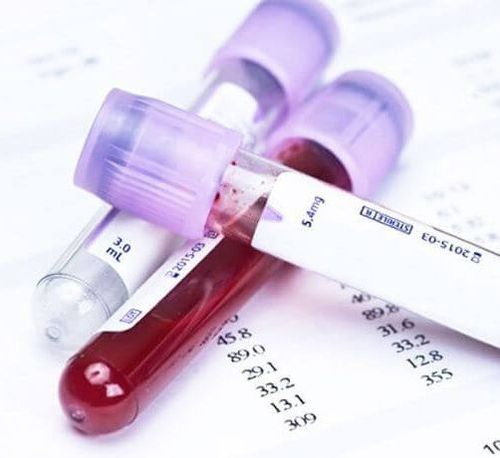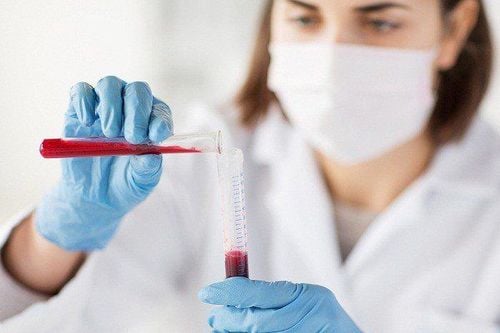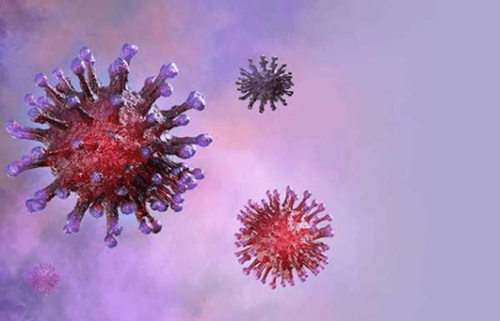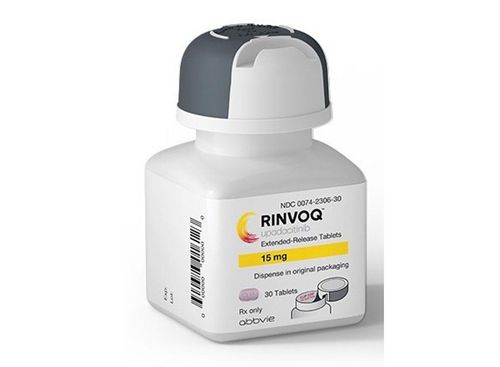This is an automatically translated article.
The article was professionally consulted by MSc Do Thi Hoang Ha - Doctor of Biochemistry, Laboratory Department - Vinmec Hai Phong International General Hospital. The doctor has 11 years of experience working in the field of clinical biochemistry.Thyroglobulin (Tg) is an iodine-containing glycoprotein synthesized by thyroid follicular cells, released into the lumen of the thyroid follicle, and plays a decisive role in thyroid hormone synthesis. During Tg synthesis by thyroid cells and transport of Tg to thyroid follicles, small amounts of protein may enter the blood, however, in some disorders, excess thyroglobulin is synthesized and released. out of the thyroid gland in high concentrations. Because it is synthesized mainly by follicular cells, the quantitative thyroglobulin assay is now commonly used to monitor efficacy and detect recurrence of differentiated thyroid cancer.
1. Thyroglobulin and Thyroglobulin test
Thyroglobulin is synthesized by thyroid follicular cells and plays a decisive role in the synthesis of peripheral thyroid hormones T3 and T4. Under normal conditions, a small amount of Thyroglobulin from the thyroid gland circulates into the bloodstream. The most important stimulator for thyroglobulin synthesis and release is the thyroid stimulating hormone (TSH) of the anterior pituitary gland. The synthesis of T3 and T4 from Tg is regulated by TSH, intrathyroid iodine levels, and the presence of thyroid-stimulating immunoglobulin.In patients with differentiated thyroid cancer, more thyroglobulin is produced, resulting in increased blood levels. Therefore, this protein is considered as a type of marker of differentiated thyroid cancer.
Quantitative test of Thyroglobulin in plasma is used to monitor the effectiveness of treatment and the possibility of recurrence of papillary and follicular thyroid cancer. Thyroglobulin levels increased markedly before treatment and decreased after effective treatment.
In addition, this is also one of the thyroid tests used in the diagnosis of a number of other related diseases. In cases of congenital hypothyroidism, the thyroglobulin test helps to differentiate between complete absence of thyroid gland and hypothyroidism or other pathological conditions.
2. Meaning of Thyroglobulin Thyroid Test
Thyroglobulin plasma reference values are normal at: 0.2-50 ng/ml. An abnormally increased or decreased Thyroglobulin value indicates a pathological risk, specifically as follows:2.1. Abnormally elevated thyroglobulin
Abnormally elevated thyroglobulin is a sign of:Untreated or metastatic differentiated thyroid cancer
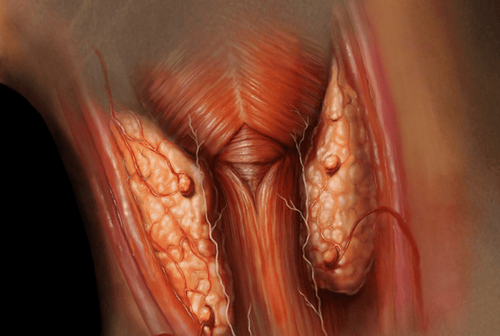
Thyroglobulin test will be ordered before and after cancer treatment (surgery, chemotherapy) to assess the effectiveness of treatment. Because the thyroid gland is the only known source of thyroglobulin production, serum thyroglobulin levels will drop to very low or undetectable levels after total or near total thyroidectomy and treatment. Radioiodine successfully removes excess thyroid tissue. Measurable serum thyroglobulin levels after complete thyroidectomy are indicative of persistently differentiated or recurrent thyroid cancer. The result of significantly increased Tg levels was argued to be a sign of disease recurrence. In patients with partial thyroidectomy, thyroglobulin levels can still be measured depending on the amount of tissue remaining after surgery
The sensitivity of this thyroglobulin test is high when the tumor is relatively small and the preoperative thyroglobulin level is high . If the pretreatment thyroglobulin test shows normal levels, this index does not help assess the effectiveness of treatment.
Recurrent thyroid cancer
Thyroglobulin gradually increases, slowly or rapidly is a sign of cancer coming back after surgery or chemotherapy. Statistics show that, after resection of thyroid cancer tumors, about 10% of patients relapse in the first 10 years, 5% in the following years.
Other diseases
Plasma thyroglobulin can be abnormally elevated not due to cancer but in some benign diseases such as: congenital deficiency of stem cells, acute thyroiditis, subacute thyroiditis, Hashimoto's thyroiditis, tumor Benign lymphadenopathy, Basedow, Graves' disease, local multinodular goiter, benign thyroid tumor. In patients with hepatic impairment, an increase in thyroglobulin levels may also be observed.
2.2. Thyroglobulin is abnormally decreased. Thyroglobulin test results are abnormally decreased in some diseases such as:
Artificial thyroid toxicity. Hypothyroidism due to goiter in children. There is no congenital thyroid gland.

Thyroglobulin test results are not used alone to diagnose thyroid cancer but need to be combined with other tests to diagnose the disease. In thyroid cancer, a definitive diagnosis is made with a fine-needle biopsy of the thyroid gland to examine tissue cells under a microscope.
3. Indications for Thyroglobulin . test
The plasma thyroglobulin test is currently used in preoperative and periodic post-operative treatment for thyroid cancer. The test results help to evaluate the effectiveness of treatment, check whether all cancerous tissue has been removed and signs of recurrence if any.Thyroglobulin test is also indicated as a standard test to monitor cancer recurrence. About 15-20% of thyroid cancer patients have the body's ability to produce anti-Thyroglobulin autoantibodies, when combined with Thyroglobulin will change the true value of Thyroglobulin. Therefore, an anti-Thyroglobulin antibody (Anti-Tg) combined test is indicated if the cancer patient has low Tg and Anti-Tg is positive. In these patients, Thyroglobulin stimulation with rhTSH is required to detect cancer recurrence.
Perform stimulation of Thyroglobulin synthesis by rhTSH as follows:
Day 1: Take blood to test for Thyroglobulin, Anti-Tg, TSH and FT4. Perform intravenous injection of 0.9 mg rhTSH (1st rhTSH injection).
Day 2: Continue intravenous injection of 0.9 mg rhTSH (2nd rhTSH injection).
Day 3: Take blood for re-test of Thyroglobulin, Anti-Tg, TSH and FT4.
Day 4: Take blood to test again for Thyroglobulin, Anti-Tg, TSH and FT4 indexes (after 72 hours after the 2nd rhTSH injection).
The test results can be argued as follows:
Tg levels of 0.1 - 2.0 ng/mL at 72 h after rhTSH stimulation are considered a risk factor for tumor recurrence u. Tg levels of 2.1 – 9.9 ng/mL are considered an increased risk factor for tumor recurrence. A Tg level ≥10 ng/mL is considered a significant risk factor (>25%) for tumor recurrence. In addition to cancer, the Thyroglobulin test is also indicated to support the diagnosis of people with symptoms of suspected thyroid disorders, thyroid enlargement, hyperthyroidism, thyroiditis,...
Patients with symptoms of hypothyroidism Thyroglobulin test combined with Anti-Tg, Anti-TPO antibody test to find out whether the cause of hypothyroidism is due to autoantibodies or not. Patients with Graves being treated with antithyroid drugs also need a Thyroglobulin test to assess the effectiveness of treatment.
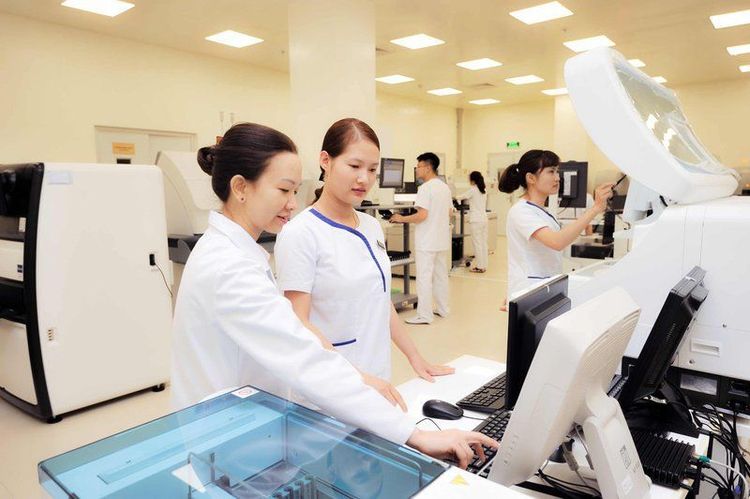
Thus, the Thyroglobulin test is of great significance to patients with differentiated thyroid cancer, used to monitor treatment and detect early cancer recurrence. However, the plasma thyroglobulin index may be abnormally elevated or decreased due to other diseases or the presence of Anti-Tg antibodies.
Vinmec International General Hospital is one of the hospitals that not only ensures professional quality with a team of leading medical doctors, modern equipment and technology, but also stands out for its examination and consultation services. comprehensive and professional medical consultation and treatment; civilized, polite, safe and sterile medical examination and treatment space.
Please dial HOTLINE for more information or register for an appointment HERE. Download MyVinmec app to make appointments faster and to manage your bookings easily.





